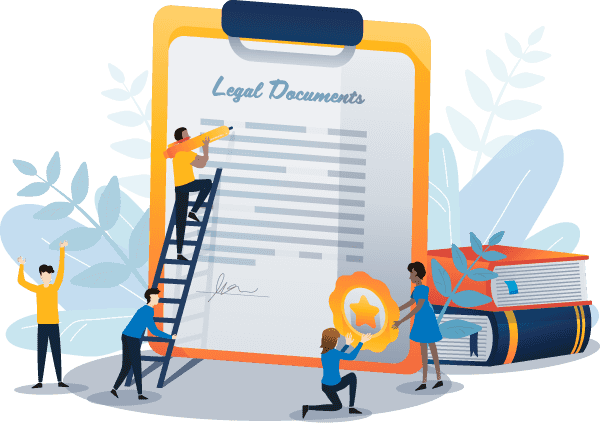Sydney-based analyst. Formerly Legal Intern at Lawpath.
Introduction
Understanding how to enforce your copyright protected material online is important to stop people from illegally profiting off of your work or for enforcing licensing agreements. If you are unsure about whether your material is protected by copyright, check out our user guide to copyright first. However, if you are pretty certain about your copyright entitlements, read this guide to learn your online enforcement options. We’re going to quickly cover fair dealings. Then, we’ll consider making complaints to the infringer as well as third-party platforms. We’ll then sum it all up for you at the end.
Fair dealings
The first step to enforce your copyright material online is to check if it is a ‘fair dealing’. In Australia, the ‘fair dealings’ exceptions in the Copyright Act 1968 (Cth) prevent certain kinds of actions from constituting infringement. However, as their name suggests, they are meant to ensure fairness, not permit blatant infringement. Therefore, the fair dealings exceptions are pretty limited and quite reasonable. The exceptions include things like using copyright material for research, review, or news purposes.
Complaints directly to infringers
The second step to enforce your copyright online is to make a direct complaint to the infringer. This requires you to identify the act you think is an infringement with a bit of specificity. If someone makes your material available online without your permission, it would be easy for you to identify this as a possible infringement. Note however that there are indirect forms of infringement which can apply as well. For example, it might be an infringement if someone is selling infringing material online. Once you identify these forms of infringement, consider how you want to make a complaint. If you think they have unknowingly infringed your rights, you could contact them and ask them to stop doing the infringing act. Alternatively, a stronger form of complaining is by issuing a cease and desist.

Customise and download your Cease and Desist Letter for free.
Get this and other important legal documents on our platform.
Get startedComplaints to third-party platforms
Hopefully, you only need to go as far as step two in enforcing your copyright online. However, sometimes this doesn’t work and you need to think about some other options. Specifically, consider any third-party platforms the infringer is using. You can look as broadly as the search engines they pop up on, or the social media platforms they are operating on. If the infringer is a website, look for an e-commerce host like Shopify or any payments services they’re using. Once you find relevant third-party platforms, check their terms and conditions, and engage their takedown practices (if any).
Terms and conditions
Firstly, many third-party platforms have terms and conditions on the way their services can be used. For example, Shopify, Facebook, and Instagram all prohibit the use of their platforms for unlawful purposes. This includes using their platforms to infringe copyright. Even search engines like Google prohibit the use of their services to infringe copyright. Additionally, payments services like Paypal prohibit the use of their platform to sell material infringing copyright.
Takedown practices
Secondly, many digital platforms have takedown practices to assist in enforcing their prohibitions against using their services to infringe copyright. This is because these platforms might be too big to monitor every one of their individual users. These practices instead let people issue the platform with a ‘takedown notice’ if their copyright material has been infringed on the platform. They can then act on the notices. Facebook for example has a reporting system for you to issue them with a takedown notice. Google has one too. Platforms have a real incentive to adopt these practices because it helps them avoid liability. For more on this, we recommend you check out the ACCC Digital Platforms Inquiry or talk to a lawyer.
Conclusion
In conclusion, the first step to enforcing your copyright online is to check for any fair dealings exceptions which may apply. If none apply, consider making a direct complaint to the infringer. If this doesn’t work, try making a complaint to any third-party platforms the infringer is using. Finally, if none of the above works, we recommend getting in touch with a copyright lawyer. You may have a case for direct or indirect infringement by the infringer, or for authorisation liability against the digital platform.






